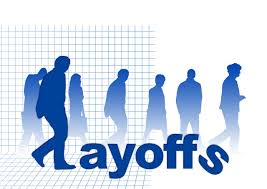
COVID-19 (coronavirus) is disrupting life for everyone. If you were hurt at work before the pandemic hit, your life has been disrupted doubly. Here are some ways how COVID-19 is complicating workers’ compensation cases for injured workers.
Delays in medical treatment
I’ve heard several reports that physical therapists and orthopedic doctors are limiting appointments and delaying procedures because of the virus. So even if an insurer or claims administrator has accepted your claim and approved treatment, you may have to wait for treatment.
Some of this delay may not be bad for workers if temporary disability benefits are being paid along with medical benefits. In 15 years of practice, I’ve seen employers and insurance companies force employees to return to work sooner and sooner. The delays in medical treatment created by COVID-19 may give some employees more time to heal from their injuries.
FMLA
But on the flip side, delays in medical care will likely force some employees to lose job protected under the Family Medical Leave Act. (FMLA) While FMLA protections were expanded under the CARES Act, those expanded protections don’t give any additional job protected leave to employees who were hurt on the job if it wasn’t related to COVID-19.
Undermining doctor choice
In Nebraska, employees have the right to pick their own doctor to treat their work injury. These doctors are often primary care doctors. Of course during a pandemic, it is harder for an injured worker to see a primary care doctor and have a primary care doctor fill out necessary paperwork for a workers’ compensation case.
Unscrupulous employers may use the unavailability of a family doctor to steer an injured worker to an employer-friendly occupational medicine clinic. This tactic pre-dates the coronavirus, but expect the pandemic to provide a new talking point for human resources and workers’ compensation bureaucrats to manipulate medical care in workers’ compensation cases.
The gears of the workers’ compensation bureaucratic complex have not stopped grinding during the pandemic. Genex, who contracts with insurance companies to micromanage medical care for injured workers, wrote a blog post last week heroically portraying one of their nurse case managers overcoming the resistance of a treating doctor and COVID-19 to return an employee back to work. (Assuming they had a job to return to in the first place.)
But if insurance companies and their minions can play the “corona card”, so can injured workers. Injured workers have the right to exclude nurse case managers from examination rooms. I would suggest injured workers’ ask nurse case managers to observe “social distancing” and stay out of cramped examination rooms.
Loss of health insurance in denied claims
Thanks to firms like Genex, many employers prematurely quit paying workers’ compensation benefits. This often forces employees to pay for medical treatment related to work injuries with their health insurance. But this plan could go awry if employees lose health insurance benefits due to a layoff.
Under the law, employers are supposed to continue health coverage under COBRA. Injured workers may also be able to sign up for health insurance under the Affordable Care Act. But COBRA coverage is too expensive for most employees and even ACA coverage can be too costly for many. Employees should see if they are eligible for unemployment under the CARES Act. Employees could help pay for health insurance with the additional $600 per week unemployment benefit on top of regular weekly benefits and extended weekly benefits available under the CARES Act. But even with increased unemployment benefits, injured workers may have to make difficult financial decision about pursuing medical care.
Previous posts about coronavirus/COVID-19
“Navigating a workers’ compensation claim amid mass layoffs and economic uncertainty” – March 30, 2020
“What workers should know about coronavirus and workers’ compensation” – March 23, 2020


